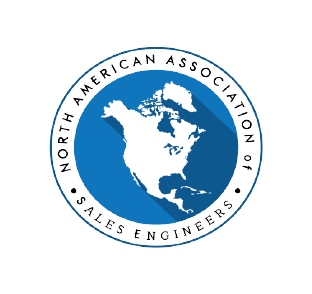North American Association of Sales Engineers
Advice for a Successful Sales Engineering Career
Since the launch of NAASE about 2 ½ years ago, we have published several articles and interviews about what is important for a Sales Engineer. These were all guest writers and speakers, many being experts and authors in the industry.
Today I wanted to offer a similar but more personal take on this subject. I want to share what I believe are the most key elements of a quality sales engineer. This is from my own experience. I had been a SE for several years, and currently hold a role titled Director of Industry Development & Technical Services.

Without further ado, these are what I believe 90% of top-notch SE’s have in common:
- Honesty: There is the old stereotype of the salesperson that lies and will say ANYTHING to get the sale (and get a commission). Today’s B2B sales and also the sales engineer should be a 180 degree turnaround from that image. Tell the truth- even if it may harm the potential of a sale for you that day. SE’s are respected (widely) for giving accurate and relatively (?) unbiased information to their clients and prospects. If that erodes, then the SE position is fairly useless.
- Analyze and question your own product (or service, software, etc) in the same way your prospects would.
- Don’t assume, and don’t trust anything (within reason): I like the old adage, “Trust- but verify”. This includes even collateral and other items that are given to you by your company. Sometimes there are outright mistakes that are marketed or transmitted. If you are in front of a client or prospect, it is YOUR reputation also on the line – not just the firm.
- Know the details, specifications, and benefits of your competitor’s product or service BETTER than your client or prospect does. There is nothing worse than being blindsided when at a sales/business meeting by a prospect who brings up and touts some “unicorn” that you’ve never heard of- and you have no response for. In this light, always be CURIOUS about your market.
- Swift and direct communication is critical. We all know this, but it bears repeating: Clients and prospects expect your response to their question or inquiry immediately. If you do not respond the same business day, you are in trouble. Respond even if your initial response doesn’t fully answer their technical question.
- Follow up and DO WHAT YOU SAY: This is opposite that other old stereotype- that salespeople will say anything upfront to get a sale, but afterwards don’t follow up and don’t actually help the client. This is where SE’s need to integrate themselves with the business issues of their clients.
There are of course a few other instrumental points to being a good sales engineer or technical salesperson. However, these listed have always done well by me, and I thought were worth noting directly.
This article was written by NAASE Vice President, Ken Lambert.


